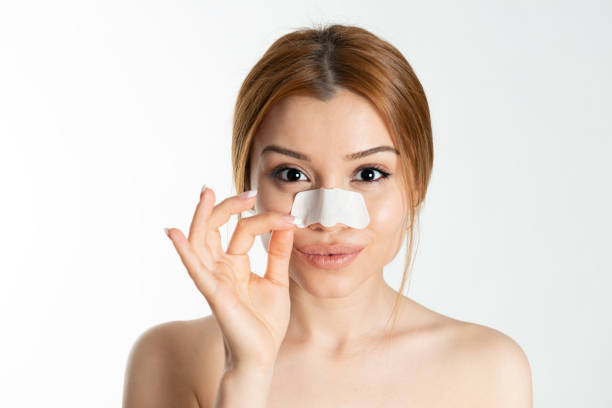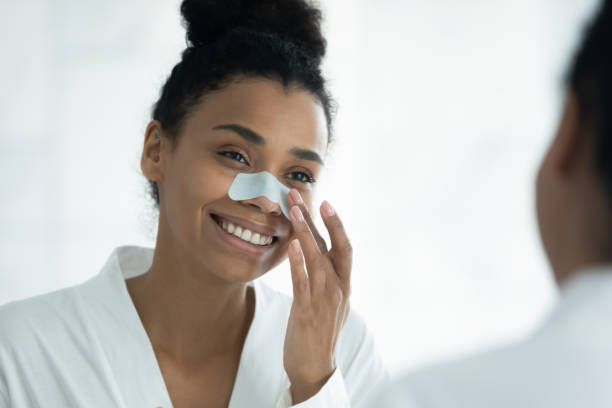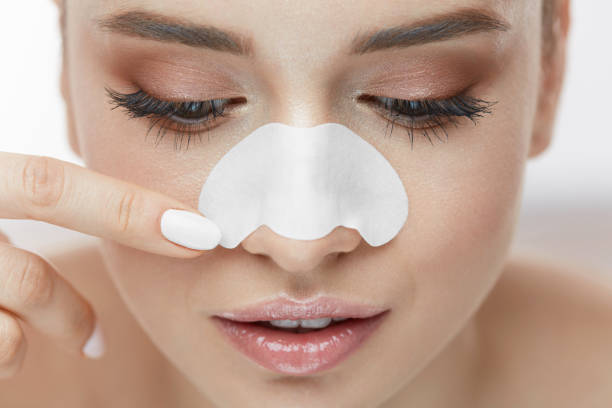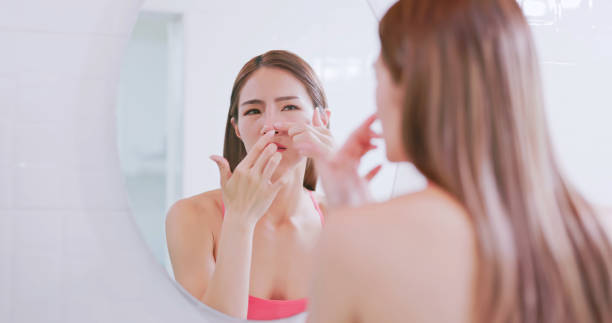Nose Peeling can be a frustrating and unsightly problem, but it’s often a sign of an underlying issue that needs attention. Whether you’re dealing with dry skin, allergies, or a skin condition, there are ways to treat and prevent a peeling nose. In this article, we’ll explore the common causes of a peeling nose, discuss the best treatments, and provide tips on how to keep your nose healthy and glowing. Read on to learn more!
Why is My Nose Peeling?
If you’re wondering why your nose is peeling, you’re not alone. A peeling nose can be a frustrating and unsightly problem, especially when it’s accompanied by redness, itching, and discomfort. But what causes a peeling nose, and how can you treat it?
A peeling nose can be caused by a variety of factors, including dry skin, allergies, and skin conditions like eczema or psoriasis. When the skin on your nose becomes dry and flaky, it can start to peel, revealing new skin underneath. This process can be itchy and uncomfortable, and may even lead to bleeding or scabbing in severe cases.
If you’re experiencing a peeling nose, it’s essential to determine the underlying cause to find the best treatment. In some cases, a peeling nose may be a sign of an underlying health issue, so it’s crucial to consult with a healthcare professional if the problem persists.
Dry Skin and Dehydration

Dry skin and dehydration are two common causes of a peeling nose. When the skin on your nose becomes dry, it can lose its natural moisture and start to flake off. This can be due to a variety of factors, including cold weather, overuse of harsh skincare products, or simply not drinking enough water.
To combat dry skin and dehydration, it’s essential to moisturize regularly and stay hydrated. Use a gentle, fragrance-free moisturizer on your nose and surrounding skin, and drink plenty of water throughout the day. You can also try using a humidifier to add moisture to the air and prevent dry skin.
In addition to moisturizing and staying hydrated, there are several other ways to combat dry skin and dehydration. Avoid using harsh skincare products, and try to limit your exposure to cold weather. You can also try using a nasal spray or balm to help lock in moisture and soothe dry, irritated skin.
Read More: Dipropylene Glycol: The Versatile Chemical with Countless Applications
Allergies and Skin Conditions

Allergies and skin conditions like eczema or psoriasis can also cause a peeling nose. When you have an allergy or skin condition, your skin may become inflamed and irritated, leading to peeling and flaking. In some cases, this can be accompanied by redness, itching, and discomfort.
If you suspect that your peeling nose is caused by an allergy or skin condition, it’s essential to consult with a healthcare professional. They can help determine the underlying cause and recommend the best course of treatment. In some cases, this may involve using topical creams or ointments or taking oral medications to reduce inflammation and itching.
In addition to medical treatment, there are several other ways to manage allergies and skin conditions. Avoid exposure to known allergens, and try to reduce stress and anxiety, which can exacerbate skin conditions. You can also try using gentle, fragrance-free skin care products and avoiding harsh chemicals or dyes.
How to Treat a Peeling Nose

If you’re experiencing a peeling nose, there are several ways to treat it. First, try using a gentle, fragrance-free moisturizer to help lock in moisture and soothe dry, irritated skin. You can also try using a nasal spray or balm to help reduce inflammation and itching.
In addition to moisturizing, there are several other ways to treat a peeling nose. Avoid picking or scratching at the skin, as this can lead to further irritation and scarring. Instead, try using a warm compress to help loosen and remove dead skin cells. You can also try using a gentle exfoliating scrub to help remove dead skin cells and reveal new, healthy skin underneath.
If your peeling nose persists or is accompanied by other symptoms like bleeding or scabbing, it’s essential to consult with a healthcare professional. They can help determine the underlying cause and recommend the best course of treatment to help you achieve healthy, glowing skin.
Further More: PCOS Acne: Understanding the Causes, Symptoms, and Treatment Options
Conclusion
In conclusion, a peeling nose can be a frustrating and unsightly problem, but it’s often a treatable one. By understanding the underlying causes of a peeling nose, such as dry skin, allergies, and skin conditions, you can take steps to prevent and treat it. Remember to moisturize regularly, stay hydrated, and avoid harsh skincare products and allergens. If your peeling nose persists or is accompanied by other symptoms, don’t hesitate to consult with a healthcare professional for further guidance and support. With the right treatment and self-care, you can say goodbye to a peeling nose and hello to healthy, glowing skin.
FAQs
What are the common causes of a peeling nose?
Dry skin, allergies, skin conditions like eczema or psoriasis, and environmental factors like cold weather or overuse of harsh skincare products.
How can I treat a peeling nose?
Moisturize regularly, use a nasal spray or balm, avoid picking or scratching, and try a warm compress or gentle exfoliating scrub.
Can a peeling nose be a sign of an underlying health issue?
Yes, in some cases, a peeling nose can be a sign of an underlying health issue like a skin condition or allergy, so it’s essential to consult with a healthcare professional if the problem persists.
How can I prevent a peeling nose?
Moisturize regularly, avoid harsh skin care products, stay hydrated, and protect your skin from environmental factors like cold weather.
When should I seek medical attention for a peeling nose?
If your peeling nose is accompanied by bleeding, scabbing, or severe itching, or if you experience difficulty breathing or swallowing, seek medical attention promptly.

